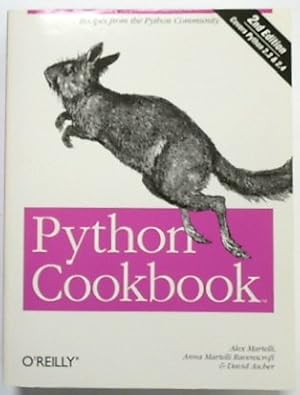Demonstrates the programming language's strength as a Web development tool, covering syntax, data types, built-ins, the Python standard module library, and real-world examples.
Alex Martelli spent 8 years with IBM Research, winning three Outstanding Technical Achievement Awards. He then spent 13 as a Senior Software Consultant at think3 inc, developing libraries, network protocols, GUI engines, event frameworks, and web access frontends. He has also taught programming languages, development methods, and numerical computing at Ferrara University and other venues. He's a C++ MVP for Brainbench, and a member of the Python Software Foundation. He currently works for AB Strakt, a Python-centered software house in G teborg, Sweden, mostly by telecommuting from his home in Bologna, Italy. Alex's proudest achievement is the articles that appeared in Bridge World (January/February 2000), which were hailed as giant steps towards solving issues that had haunted contract bridge theoreticians for decades.
Anna Martelli Ravenscroft has a background in training and mentoring, particularly in office technologies. She brings a fresh perspective to Python with a focus on practical, real-world problem solving. Anna is currently pursuing a degree at Stanford University and often pair programs (in Python) with her husband and children.
David Ascher is the lead for Python projects at ActiveState, including Komodo, ActiveState's integrated development environment written mostly in Python. David has taught courses about Python to corporations, in universities, and at conferences. He also organized the Python track at the 1999 and 2000 O'Reilly Open Source Conventions, and was the program chair for the 10th International Python Conference. In addition, he co-wrote Learning Python (both editions) and serves as a director of the Python Software Foundation. David holds a B.S. in physics and a Ph.D. in cognitive science, both from Brown University.
